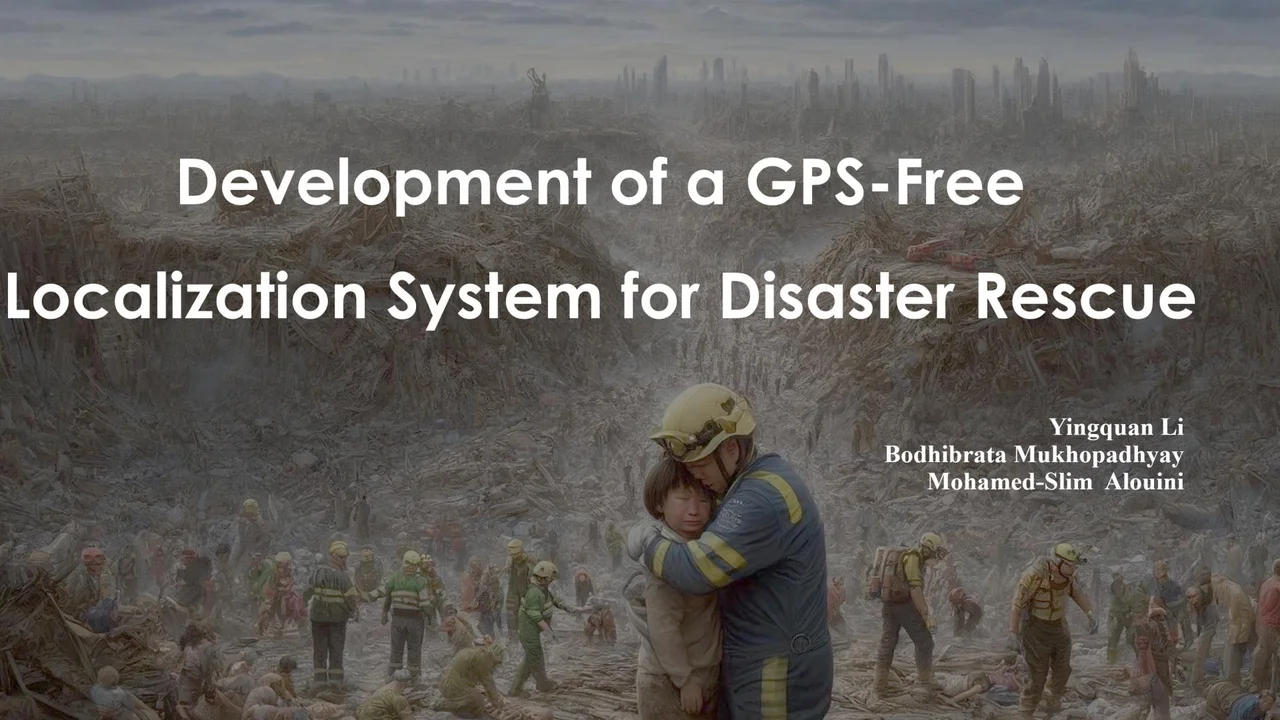
Development of a GPS-free localization system for disaster rescue
About
Environmental disasters continue to present significant challenges to human society, causing millions of deaths annually. In response to this pressing issue, a research team from the Communication Theory Lab (CTL) at King Abdullah University of Science and Technology (KAUST) has studied in leveraging wireless localization techniques to aid in disaster rescue efforts.
Led by Prof. Mohamed-Slim Alouini, the CTL team, including Yingquan Li and Dr. Bodhibrata Mukhopadhyay, has developed a progressive study titled "Development of a GPS-free Localization System for Disaster Rescue." This innovative research addresses the need for swift and accurate location determination of survivors in disaster-stricken regions, where traditional GPS signals may be unavailable or delayed.
The CTL team's proposed localization system operates without GPS, instead relying on signals transmitted by victims and received by rescue personnel. These data are then transmitted to the command center, where advanced localization algorithms developed by the researchers process the data to determine the victims' locations.
Yingquan Li, a PhD candidate at CTL, explains, "To validate the effectiveness of our system, we conducted real-world experiments in a desert area spanning kilometers. We deployed localization devices to simulate victims and rescue personnel, with my computer serving as the command center. The collected data were processed using our proposed algorithms."
Dr. Bodhibrata Mukhopadhyay, a former postdoc at CTL involved in the project, highlights the system's performance, stating, "We achieved a 50% reduction in localization error compared to existing techniques. Additionally, the response time of our system is just 80 ms, representing a significant advancement in wireless localization."
The research demonstrates the potential of wireless localization in environmental disaster rescue to enhance life-saving efforts. Their research results have been selected for participation in the final round of the IEEE ComSoc 4MT Competition 2024.
More information can be found in the video given below: